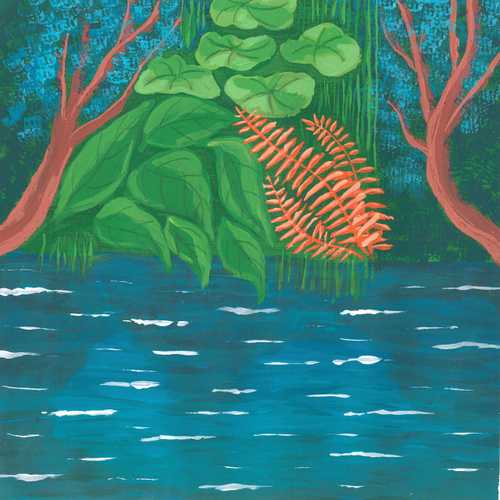
Do rain sounds help you sleep? — Immersive recordings and science
We shouldn’t need studies to prove that the sound of rain makes us sleepy, because it’s likely that we’ve had this experience ourselves. But is the reason as simple as nostalgia for rainy childhood camp-outs or cozy school breaks spent inside during wet weather? A proliferation of ‘rain sounds for sleeping’ apps and playlists suggest there may be more to it…
Rain sounds on earth.fm:
- Calm rain in the Amazon jungle
- Reassuring soft rain in the rainforest of Costa Rica
- Rain in a field of banana trees 🌧️
- Dense rain over trees in the rainforest
- Gentle rain in the Borneo rainforest
- Jungle monsoon
- Forest rain with tiny owl hooting 🦉
- Chromatic rain in the Namib Desert
Science Info states that the sound made by the impact of falling rain is an example of “quiet noise”, which is classified as falling within the low frequencies of those that humans can hear, which range from 20 to 20,000 hertz (Hz). According to doctors, stimulation from monotonous rhythms like rainfall can “calm nerves, cure insomnia and make listeners sleep deeper”.
Emily Mendez, a mental health writer and former psychotherapist, suggests that its “regular, predictable pattern” is interpreted by our brains as being “a calming, non-threatening noise”. Tellingly, pink noise (or 1⁄f noise) – so named because visible light from the same power spectrum appears pink – has been touted for its use in sleep therapy. As with the sound of rainfall, it filters out other, higher, more distracting sounds, thereby reducing sleepers’ brain wave complexity.
However, rain has the advantage of activating our other senses too, particularly that of smell. A 2016 study cited by Healthline suggests that “odor-evoked memories are more emotional and evocative than memories triggered by our other senses”. Smells are processed by the olfactory bulb, which has direct connections to the amygdala and the hippocampus: the areas of the brain “most strongly connected to emotion and memory formation”. Therefore, the scents of rain – notably petrichor, the smell of rainfall on dry earth (a word coined in the 1960s) – evoke positive associations that connote safety and security.
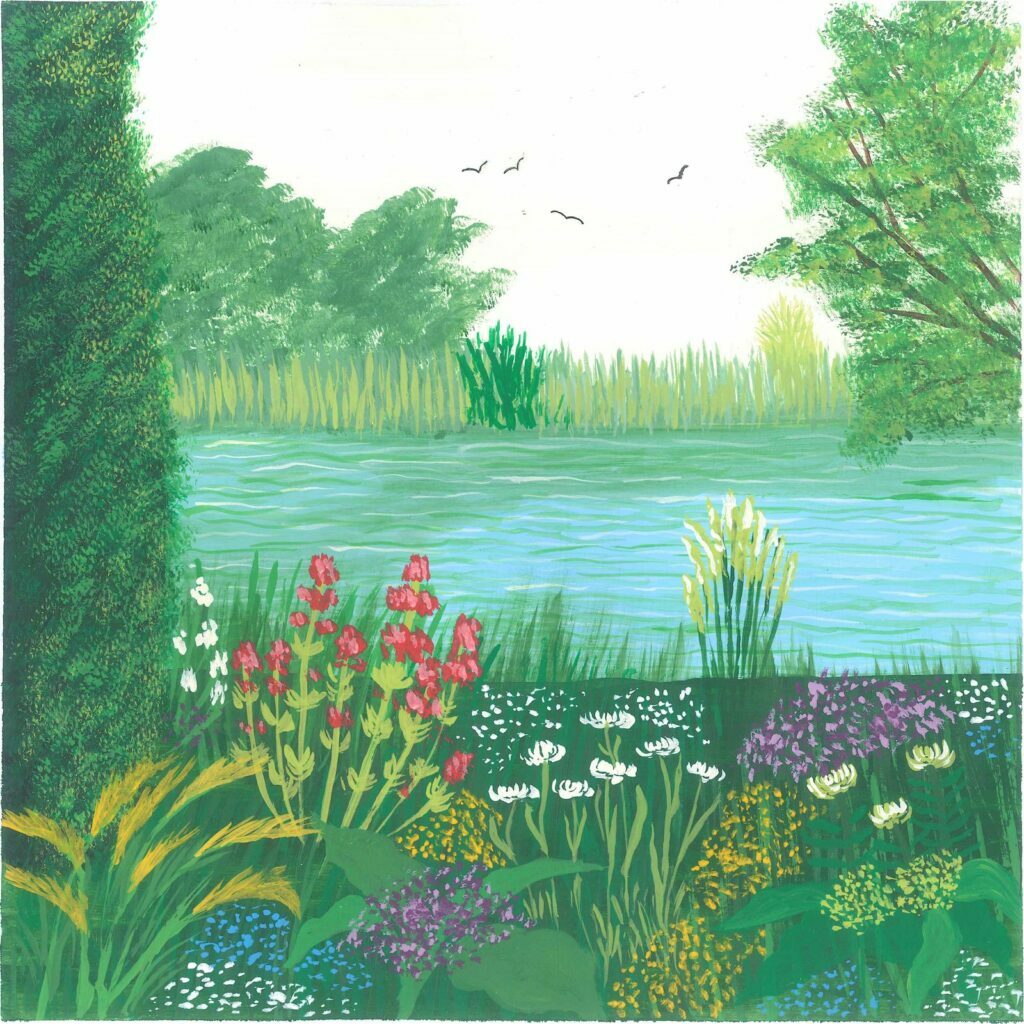
Another simple reason that rain may cause sleepiness relates to light. Whereas sunlight increases our serotonin levels, making us happier and more energetic, the gloominess caused by rain clouds tends to instead increase production of the sleep-regulating hormone melatonin. 🌧️
More nebulously, it’s also possible that the negative ions which are generated when large quantities of water molecules collide – which occurs in waterfalls and waves as well as during rainfall – may contribute to rain causing positive feelings. Though largely considered to be a pseudoscience, negative ion generators are used to treat various conditions, including stress-related problems, which may account for this association.
ASMR
All of the above may ring some bells if you’re at all familiar with the phenomenon of ASMR. For the uninitiated, that stands for ‘autonomous sensory meridian response’. This sensation – typically described as a tingling which originates on the scalp, before spreading down the spine – has spawned in excess of 18 million YouTube videos attempting to trigger it.
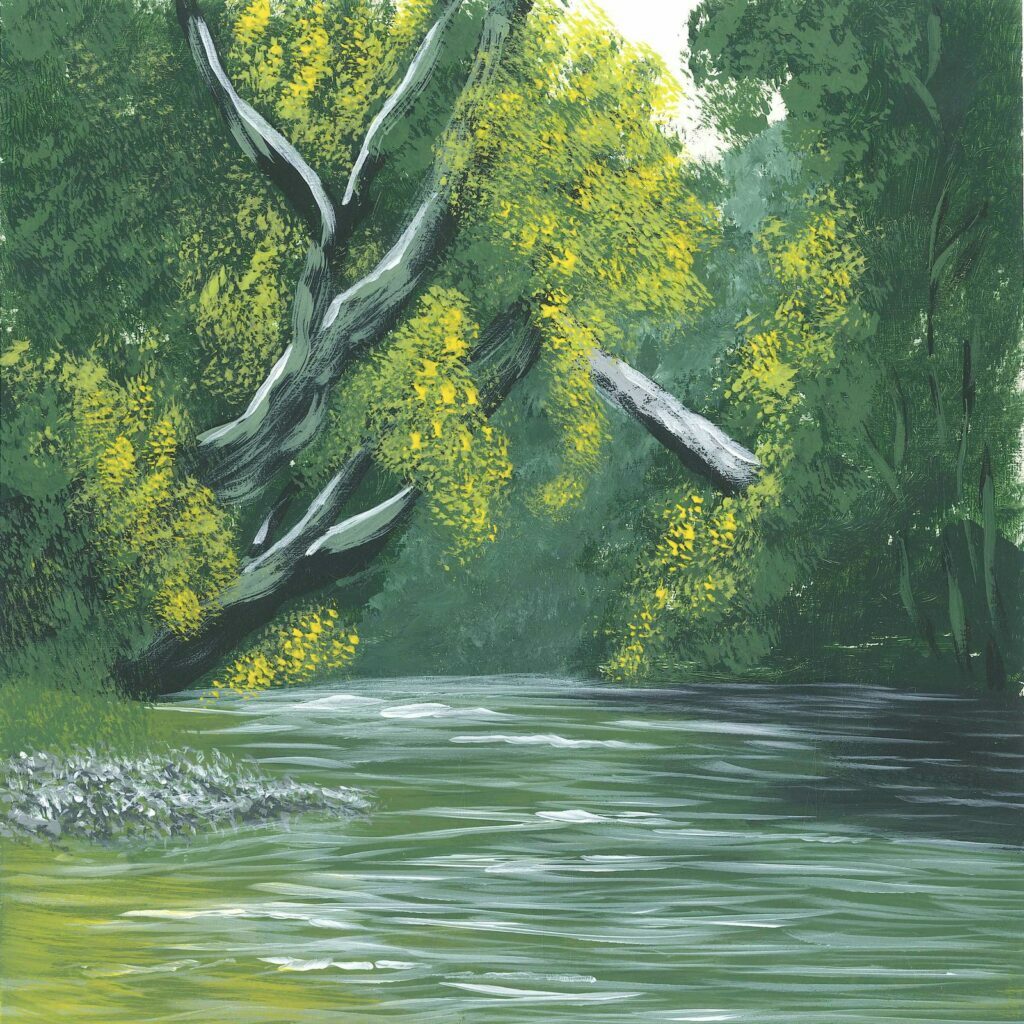
Key to this burgeoning subculture is Jennifer Allen. A manager in a cybersecurity company, ham radio operator, practicing medical herbalist, amateur fiction writer, biohacking enthusiast, and Krav Maga and aikido novice, since 2009 she has also been instrumental in the recognition of ASMR, from coining the term itself to successfully lobbying Wikipedia to add an entry on the topic. Having already experienced the sensation she would come to name, Allen first encountered others who had had similar experiences in a steadyhealth.com forum thread under the title of ‘Weird Sensation Feels Good’ (a phrase now borrowed for a current exhibition at London’s Design Museum).
In a 2016 interview, Allen explains that, when coining the term, she listed “key characteristics and then looked for terms that would adequately describe each one”. She consciously chose objective language to legitimize discussion of the subject, allow people to feel “comfortable using it, because I knew that would determine whether or not we would begin to organize and gain the numbers needed to reach everyone, get consensus, and bring the community out in the open”.
She notes that her daily use of ASMR has made her “better equipped to deal with difficult, emotional, or stressful moments”, meaning “I’m able to do more with each day, which is deeply satisfying to me”, and that others have “reported pain relief, sleep after suffering insomnia, stress reduction, and even help with PTSD”. She concludes, “How could I not be happy that I had some part in that?”
Negative associations
However, it’s worth acknowledging that, for everyone who finds rain sounds soothing, there are others for whom rain (and the associated possibility of thunder and lightning) may have the alternative effect of causing stress and even panic. If that’s the case, then avoid these earth.fm recordings of storms made in Norfolk, England and Johannesburg, South Africa!
In extreme cases, it is possible to suffer from ombrophobia, a type of anxiety disorder manifesting as an extreme fear of rain. It may be that sufferers believe rain to be harmful – for example, due to acid rain or germs carried in rainwater – and they may go to extreme lengths to avoid it, such as not going out when rain seems likely, or even avoiding living in areas on the basis of its frequency. The causes of phobias are unclear, but could be connected to traumas related to the subject triggering it – in this case, experiencing a severe storm or flood, for example.
More generally, fear of storms, and everything that comes with them, feels natural: thunder is intimidating, lightning can be lethal, being caught out in the rain could lead to exposure. It’s not hard to imagine that an aversion to these conditions – unless you’re safely inside or under cover – is hardwired into us from humanity’s earliest days, when hominids would have taken shelter from such dramatic weather conditions.
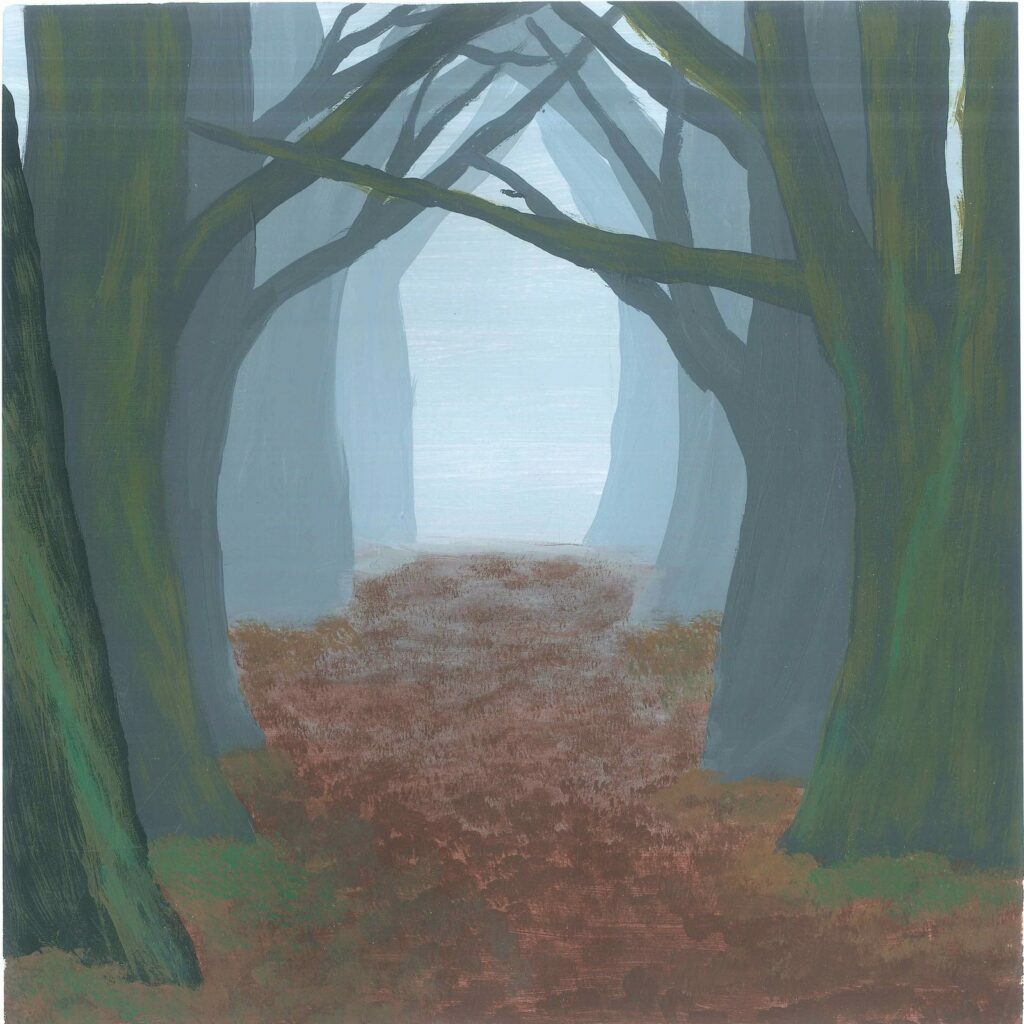
Perhaps that accounts for the way that rainy conditions are used in fiction. In literature, pathetic fallacy relates to the attribution of human feelings to the things around us – a typical example being the onset of rain to reflect a character’s grief or sadness. How often have we seen the weather in a romance change from glorious sunshine to lashing rain when aspersions when a relationship seems imperiled?
Think, too, of the close association between horror films and stormy weather: the atmosphere of Dracula’s castle or Frankenstein’s laboratory would be greatly diminished were they not pounded by rain and illuminated by flashes of lightning. So clichéd is this relationship – The Rocky Horror Picture Show parodied it nearly 50 years ago (“You’re wet” “Yes; it’s raining”) – that, in contrast, many horror films’ claim to fame is the fact that they take place during daylight hours and are untouched by a drop of rain.
Recordings on earth.fm
However, if you’re lucky enough to have the luxury of allowing yourself to be lulled to sleep, then the earth.fm archive can help. The following are rain-sound recordings made across the globe:
- A temperate forest near Chichester, England
- Dead trees in a Namib desert clay pan, Namibia, being played like a xylophone by the raindrops of a rare shower
- A storm on Velebit mountain, Croatia ⛈️
- Spring rain in the primeval forest of Bosnia and Herzegovina’s Sutjeska National Park
- A rainforest in the Indigenous reserve of Chigorodó, Colombia, living up to its name
- Rainfall, thunder, and a chorus of frogs in the Peruvian Amazon
- Rain and a dawn chorus in a deciduous forest near Godalming, England
- Gentle rain in Malaysian Borneo 💧
- Soft rain at dawn in Costa Rica
- Slow, rhythmic thunderclaps in a rainforest, Malaysia
- Rainfall and woodland birdsong in Norfolk, England.
But while you’re at it, spare a thought for those making the recordings in inclement conditions. Field recordist Melissa Pons provides some insight:
“A lot of people find rain sounds relaxing, but maybe only from a perspective of listening to it, not being out in it. ‘Rain sounds for study or reading’ videos on YouTube, with a thumbnail looking out through the window of a wooden house, represent that kind of feeling and aesthetic.
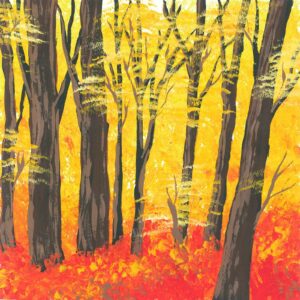
“Whereas, I love rain sounds, but that includes recording them – though this usually implies a risk to the equipment. A situation I encountered this year was that the drops were sparse but heavy enough to reveal the kind of surface they were falling on; like wind can, rain reveals surfaces, textures, and space. (Interestingly, in nature field recordings, wind moving through small-to-medium leaves is easily mistaken for rain – as in this recording.) So, every once in a while, the drops hit the bag with the recorder inside, pretty much ruining the recording.
“Recording rain sounds has also made my perception of urban versus natural environments clearer. In Brazil, while a tropical rainstorm was going on, it struck me how, when it rains in a forest, the water really has a place to go – the soil – meaning that it feeds everything nicely, as long as the system is balanced. Whereas, in a city, water runs over surfaces, falls from roofs, creates puddles, and can even flood.”
This difference is very telling in terms of how much human development disrupts natural processes. Perhaps it’s worth remembering that, as restful as they may be, rain sounds are simply a byproduct of a more complex process, which – like so much of the natural world – is gravely affected by the demands of human society.
Earth.fm is a completely free streaming service of 1000+ nature sounds from around the world, offering natural soundscapes and guided meditations for people who wish to listen to nature, relax, and become more connected. Launched in 2022, Earth.fm is a non-profit and a 1% for the Planet Environmental Partner.
Check out our recordings of nature ambience from sound recordists and artists spanning the globe, our thematic playlists of immersive soundscapes and our Wind Is the Original Radio podcast.
You can join the Earth.fm family by signing up for our newsletter of weekly inspiration for your precious ears, or become a member to enjoy the extra Earth.fm features and goodies and support us on our mission.
Subscription fees contribute to growing our library of authentic nature sounds, research into topics like noise pollution and the connection between nature and mental wellbeing, as well as funding grants that support emerging nature sound recordists from underprivileged communities.

